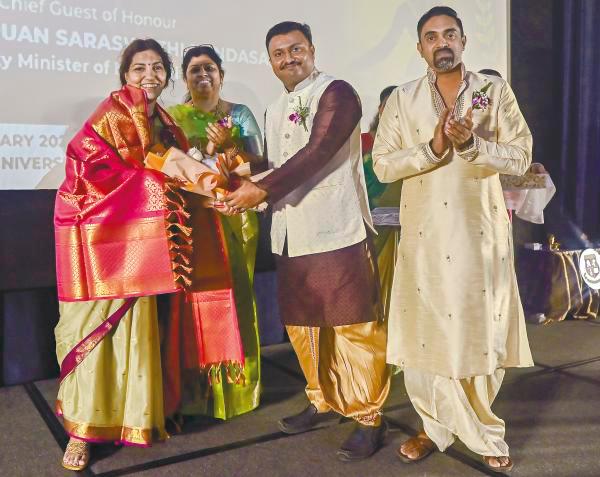KUALA LUMPUR: They came to Malaya in the 19th and early 20th centuries as crop labourers under the kangani system and were joined in the 1930s by professionals and traders who fled Burma (now Myanmar), following the anti-Indian riots and during World War II when the Japanese invaded the country.
Now, a first-of-its-kind book, Malaysian Telugus – Untold Stories of Andhra Pioneers, has been written by senior philosophy lecturer at a private university Dr Malini Ramanan, to document the community’s history.
Malini, who is a Telugu herself, said by 2020, the community had grown to between 119,000 and 300,000.
However, the Telugu Association of Malaysia (TAM) estimates their population at about 500,000, with today’s Telugus mostly third and fourth-generation descendants.
The book, launched by National Unity Deputy Minister Saraswathy Kandasami, coincided with the 68th anniversary celebration of the TAM, which was held on Feb 17.
“My research from 2006 to 2012 was dedicated to uncovering the stories of our community’s pioneers, who migrated from Andhra Pradesh to Malaysia over 200 years ago during the 19th century.
“Through my book, I aimed to document the challenges, successes, and contributions of the Telugu community to Malaysia,” Malini said.
She added that despite facing challenges during her research, her book is the result of the resilience and vitality of Malaysian Telugus who survived the harsh realities of life in an alien country, only to build a promising future intact with their unique cultural heritage and identity.
“This book was not just an academic project. It is a personal mission to preserve our cultural heritage for future generations.
“The 11 chapters of the book revolve around the community’s milestones in Malaysia, such as the establishment of the first Telugu school, new urban realities, joint communal investments and more.
“Despite our relatively small numbers in places such as Bagan Datuk and Teluk Intan in Perak, early Telugu migrants established themselves and set up institutions such as Telugu schools to ensure the continuity of the language and culture.”
She said early Telugu leaders, who were often guided by influential matriarchs, established the groundwork for future generations to take immense pride in their shared history and culture, which the book also documents.
On TAM’s contribution, Malini said the association stands as a tribute to the ongoing efforts to maintain and promote Telugu ethnic identity within the diverse Malaysian landscape.
TAM president Dr Vengkata Prathap Simanchalam said the event, which drew about 400 attendees, including Telugu community leaders, is a testament to the dedication of its members, volunteers and supporters.
“Over nearly seven decades, we have been committed to preserving, promoting and celebrating the Telugu language, culture and traditions. I am truly happy to witness researchers such as Malini provide a perspective of the community.”









